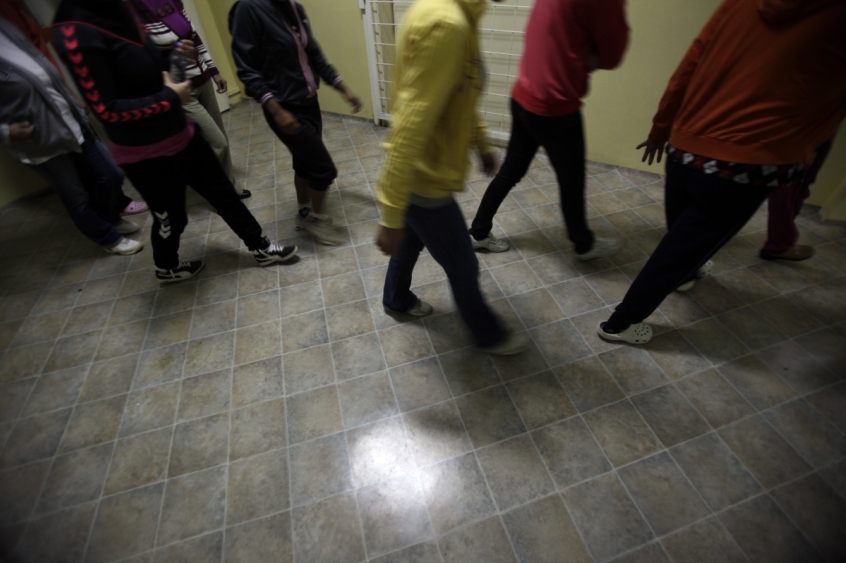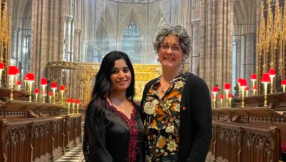
The Centre for Social Justice has this week released a report investigating the reality of gang culture in the UK, with a particular focus on the girls and young women who are caught up in violence and abuse, but whose plight is often neglected.
The report, researched in conjunction with Christian urban youth charity XLP, suggests that the estimated figure of 12,500 girls and young women being "closely involved in gangs" is "crude at best".
"We are often unsighted about the desperate lives of girls embroiled in gangs," notes editor Edward Boyd, Deputy Policy Director at CSJ.
"While the media regularly shines a spotlight on the criminality of male members, the daily suffering of girls goes largely unnoticed. They live in a parallel world where rape is used as a weapon and carrying drugs and guns is seen as normal."
The report asserts that little is known about the effect of gang life on girls' education, families, friends, or their "propensity for criminality".
"It is only by listening to the girls themselves that we can start to understand the problems they have faced."
The new research sets out to do just that, featuring case studies from girls caught up in gang culture, and an exploration of the systematic emotional, physical and sexual abuse that often means they are left powerless to escape.
The findings indicate that girls are regularly pressured into having sex with young boys as part of their 'initiation', and rape is often used as a weapon to control and manipulate. One of the most shocking revelations was made by a charity which shared a practice known as a 'line-up', where girls are forced to perform sexual acts on groups of men, one after the other.
Following the report's release, XLP held an event in London on Monday with the aim of facilitating discussion about the long-term, sustainable solutions to tackle the issue of girls in gangs, and prevent their involvement in the first place.
Dean Haydon, Detective Chief Superintendent for the Trident Gang Crime Command, offered the context of gang warfare in London, noting that there are around 250 gangs with 3,500 members across the capital.
He shared the Met's approach to tackling the issue, saying that they primarily focus on physical violence - killings, shootings and stabbings - which Haydon said is usually, although not always, male dominated.
He added, however, that there is an inadequate understanding of the real issues at hand. "We need to properly understand the problem of girls in gangs, which we just don't at the moment. Only then can we look at who is best placed to intervene," he said.
He suggested changes to the way that schools tackle the issue, noting that education has a key role to play in making a cultural shift - a suggestion made several times in the course of the evening.
Carlene Firmin of the MsUnderstood Partnership was also clear that a "whole environment approach" is needed to eliminate youth gang culture, for the benefit of both boys and girls.
"We need to think beyond the home, and deal with the whole environment, including the school environment, to shift and challenge behaviours," she said.
"We need to turn research into action, and change the environment that young people are living in. I'm fed up of them being blamed. It's not all about their behaviour – that attitude is unacceptable.
"We've let young people down. We need to make communities safe and stop problematising children who are merely trying to navigate tough environments. There's a bigger problem here."
Others taking part in the debate included Simon Hughes MP, Jennifer Blake, CEO and founder of Safe N Sound, and Emer Sutherland, who works with vulnerable young people who come through hospitals. Each also stressed the importance of community in ending gang culture and seeing change in the way that young girls are viewed, respected and treated.
"This is a community issue," Blake underlined. "We need to go into the depths of communities to draw young people up."
CEO of XLP Patrick Regan concluded the evening with the assertion that "to see change, you need a grassroots push".
"Policy doesn't need to be decided by Westminster. We will only see change by working together. We need to know our communities and own them," he said.
He cited trust in youth workers, a belief that change is possible, and recognition of the need to change as key in a young person's transformation.
"Young people need to be inspired to make a difference, through relationships that restore trust and nurture hope," he asserted, thanking those in the room for their dedicated work in transforming UK youth culture.
CSJ's report makes recommendations that youth workers be placed within hospitals to identify and work with at-risk young people, and calls for greater support for those girls left vulnerable when their boyfriends are imprisoned for gang activity as well as an urgent response from schools, community leaders and policy makers.
It concludes: "Gang life is blighting the lives and future of too many girls. Doing nothing is not an option."













